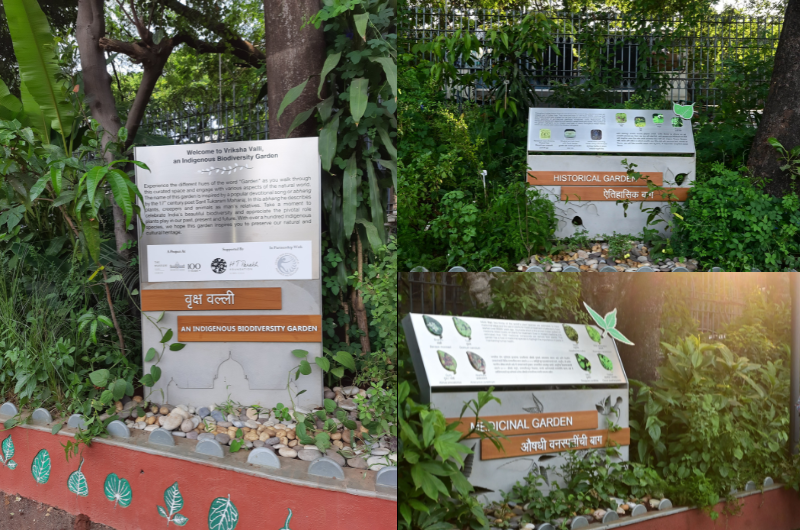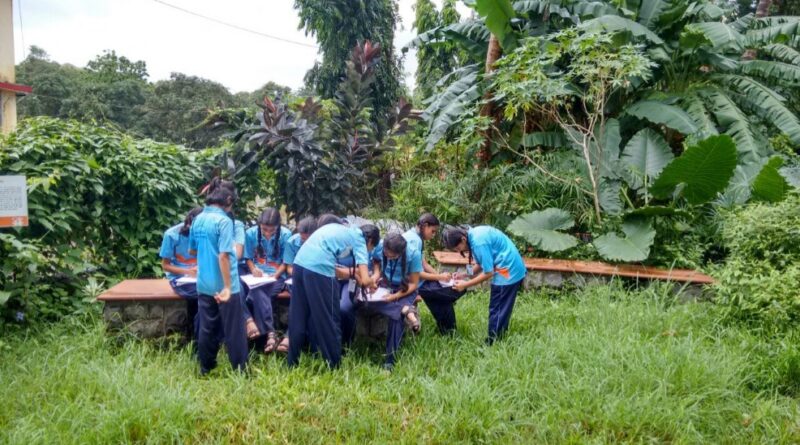Biodiversity and Educational Gardens
Think about this: Each year 10,000 to 1,00,000 species of plants and animals are becoming extinct on our planet.
In order to augment Biodiversity, CERE has been creating many biodiversity gardens in and around the city of Mumbai. CERE plants only native species in order to create habitats for the insects, birds and other animals that depend on these plants for their food and shelter. Creating such habitats ensures the increase of biodiversity. However, the preliminary aim of these gardens is to provide opportunities for children to experience nature and make these gardens act as living textbooks. With such educational experiences children will grow up to be nature conservationists.
The Key Concepts of our Gardens:
- Creating habitats for biodiversity
- Connecting children to nature
- Natural and Cultural Heritage Conservation
- Encouraging Garden Based Learning
Native plants play a unique role in rejuvenating local biodiversity. They have evolved over millennia in a specific region and thus have special features that help them adapt to a particular environment. In turn, these plants support local varieties of insects, birds and animals that are dependent on them for food and shelter. Therefore, once native plants have been planted they regenerate habitats and support the entire ecosystem of a region.
SP Native Biodiversity Garde, Teenvira, Alibaug:
Spread over one acre of land at the edge of Teenvira Dam, this garden showcases the beauty and wonder of native plant species. This garden has 17 different thematic sections namely sensory, medicinal, butterfly, wetland or pond ecosystem, grasses, ficus, orchids, ferns, bamboo, palms, spices, kitchen, vertical, adaptation, celebration and a sacred grove. The garden plays host to over 500 native species of plants, some of which are extremely rare and unique with saplings having been procured from across India. Learn more at https://www.spbiodiversitygardens.com.
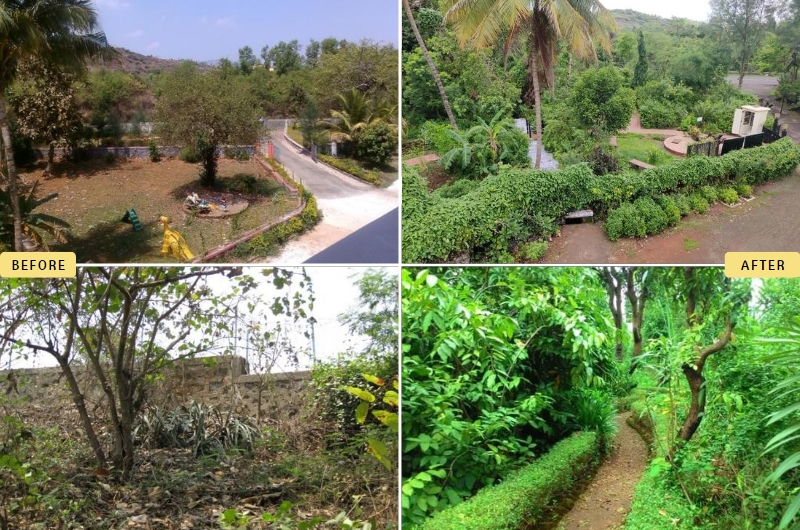
BPCL Butterfly Garden, Chembur, Mumbai
The BPCL Mumbai Refinery Butterfly Garden in Chembur was created to serve as “Biodiversity Island” for native and rare plants, birds, insects, bees and especially butterflies. Butterflies play a vital role in the food chain and their presence is a sign of a healthy ecosystem. Each plant in the garden was carefully selected to play the role of either a host or nectar species in order to create a supportive habitat for butterflies to flourish.
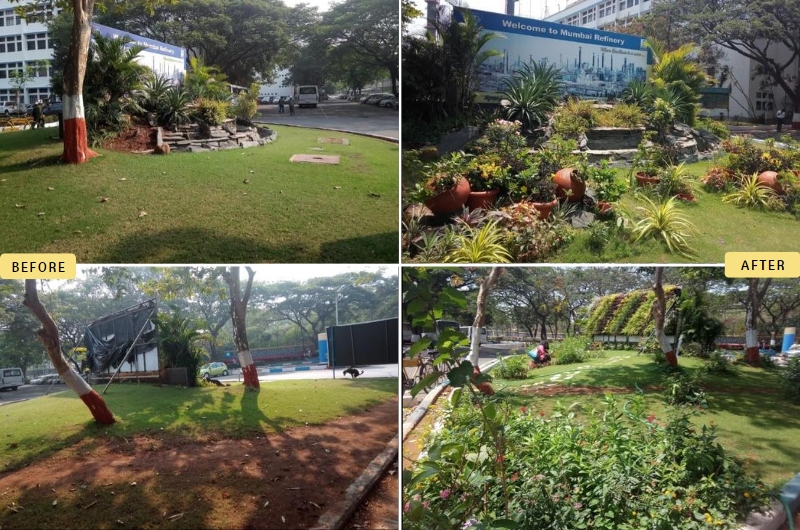
Adenwalla Garden, Nana Chowk, Mumbai
The Adenwalla Garden was design to increase the local flora and fauna in the surrounding urban area. The garden helps enhance the greenery, in the midst of concrete and steel.
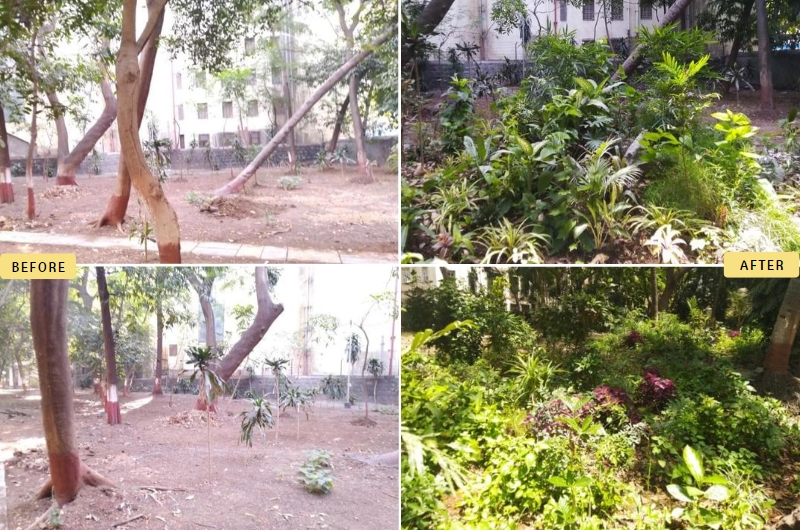
Masina Hospital, Byculla, Mumbai
The Masina Hospital Garden is a spices and kitchen garden, create to provide garden based, outdoor learning activities for the specially-abled. Apart from skill development, the garden provides edible plants that can be used in the kitchen.
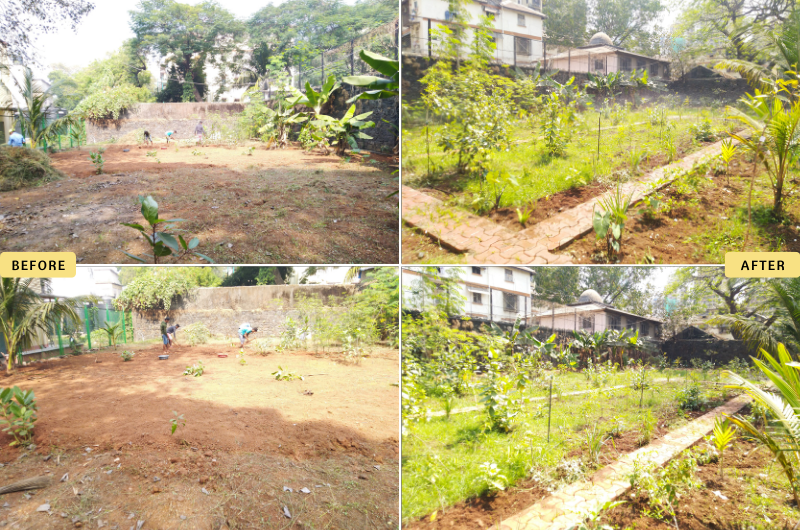
Vriksha Valli at CSMVS
Vriksha Valli (वृक्ष वल्ली), the Native Biodiversity Garden at Chhatrapati Shivaji Maharaj Vastu Sangrahalaya (CSMVS) has been developed not only to conserve and nurture local biodiversity but also to promote a deeper understanding of India’s rich natural heritage amongst the museum’s visitors while highlighting the unassailable and deeply influential connection between plants and Indian history and culture.
